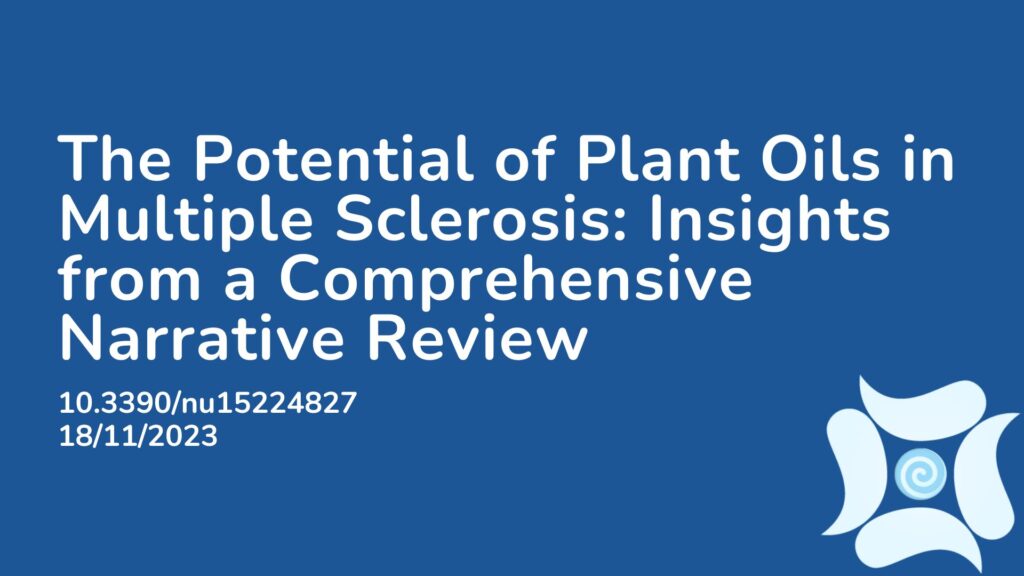Summary:
Multiple sclerosis (MS) is a chronic autoimmune disorder affecting the central nervous system. Various types of MS exist, each presenting different symptoms, including limb weakness, organ dysfunction, and psychological changes. The presence of MS involves complex factors such as genetics, vitamin D levels, infections, smoking, sun exposure, obesity, and dietary habits. Current MS therapies encompass medications, stem cell therapy, and lifestyle modifications. Nutrition also plays a role in MS as anti-oxidants and essential fatty acids have been investigated for their potential impact on disease progression. This narrative review explored the effects of 10 plant oils on MS, including pomegranate seed oil, sesame seed oil, and olive oil. These oils, rich in essential compounds and phyto-chemicals, demonstrated potential benefits in reducing MS progression. The findings showed they could be effective due to their ability to reduce inflammation, positively modulate the immune system, enhance anti-oxidant activity and inhibit oxidative stress. The review covered human clinical trials and animal models and provided insights into the mechanisms underlying the effects of these plant oils on MS.
Abstract:
Multiple sclerosis disease (MS) is a 38.5 chronic neurological autoimmune disease that affects the nervous system, and its incidence is increasing globally. At present, there is no cure for this disease, and with its severity and disabling variety, it is important to search for possibilities that could help to slow its progression. It is recognized that the mechanisms of MS pathology, its development and degree of activity can be affected by dietary factors. In this review, the beneficial health effects of 10 plants oils—mainly seed oils, including pomegranate seed oil, sesame oil, acer truncatum bunge seed oil, hemp seeds oil, evening primrose seed oil, coconut oil, walnut oil, essential oil from Pterodon emarginatus seeds, flaxseed oil and olive oil—on MS are discussed. The literature data indicate that plant oils could be effective for the treatment of MS and its related symptoms primarily through reducing inflammation, promoting remyelination, immunomodulation and inhibiting oxidative stress. Plant oils may potentially reduce MS progression. Longitudinal research including a larger sample size with a longer duration is essential to confirm the findings from the selected plant oils. Moreover, new plant oils should be studied for their potential MS benefit.
Article Publication Date: 18/11/2023
DOI: 10.3390/nu15224827




